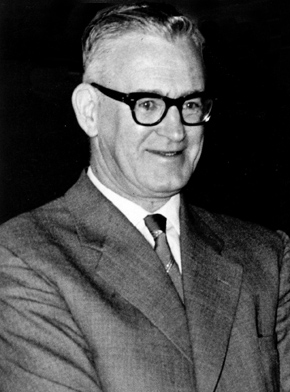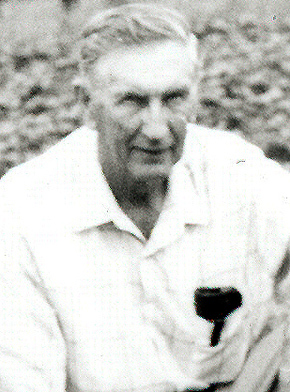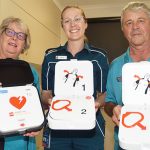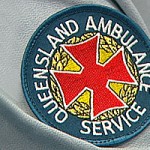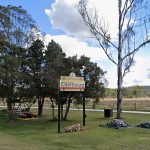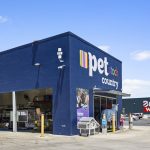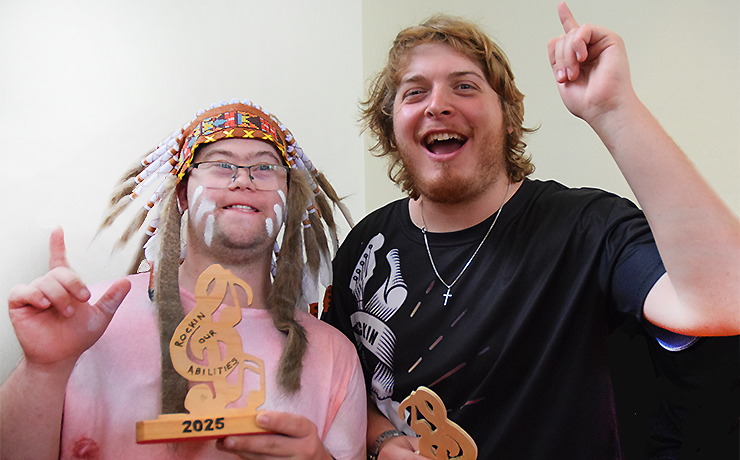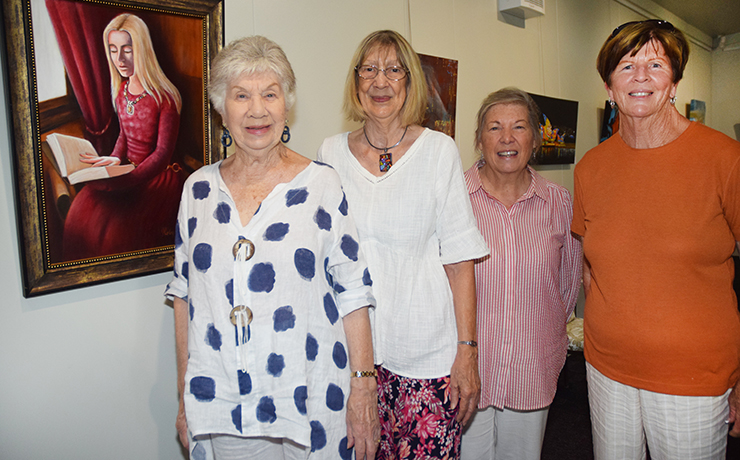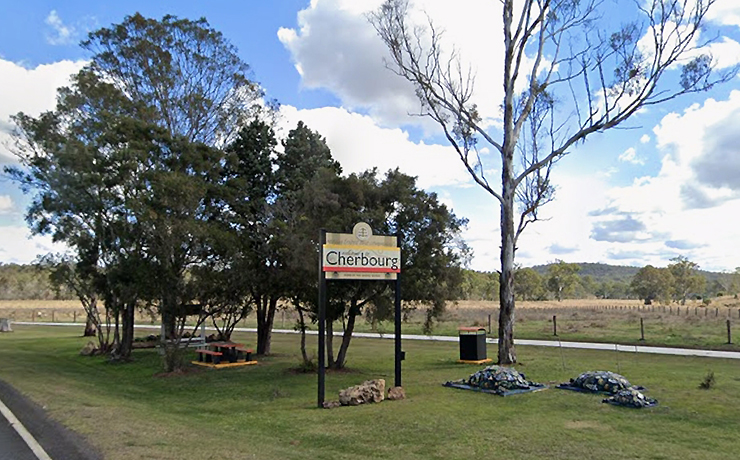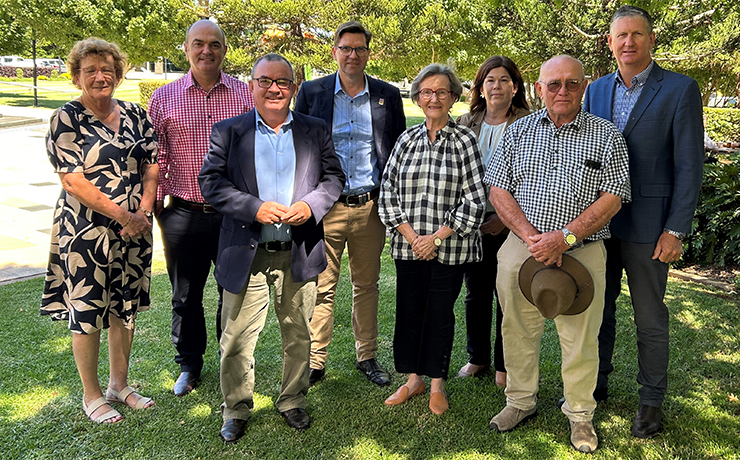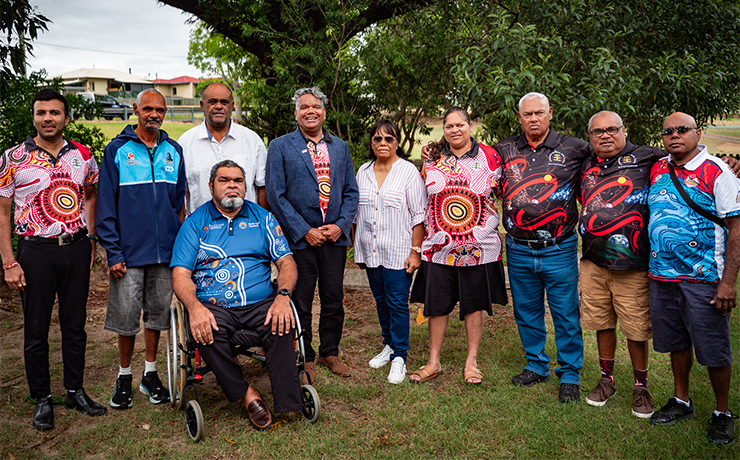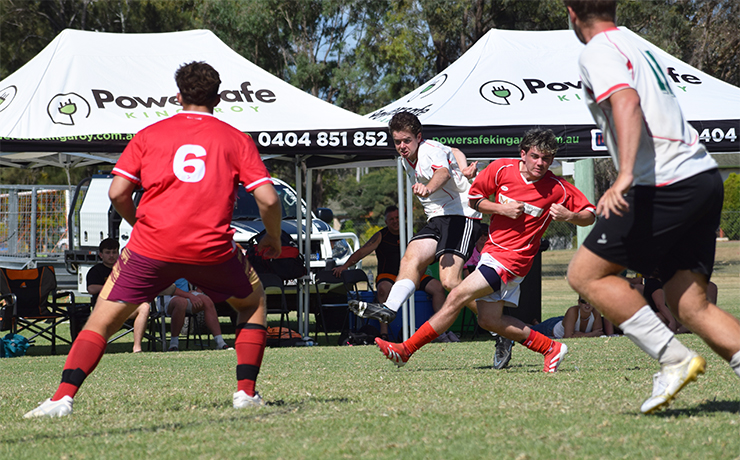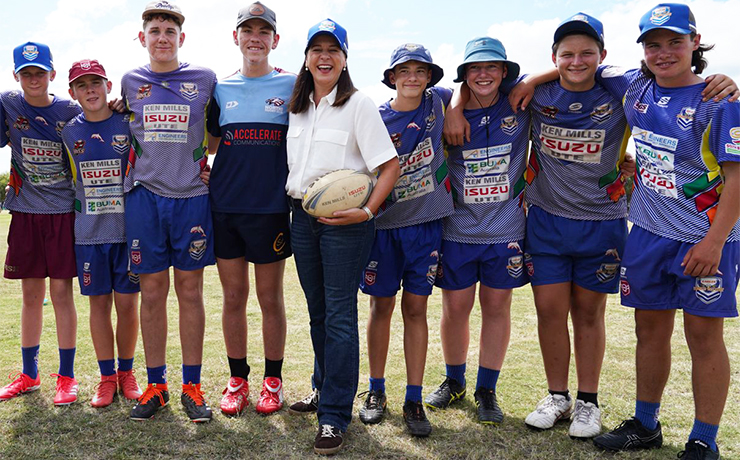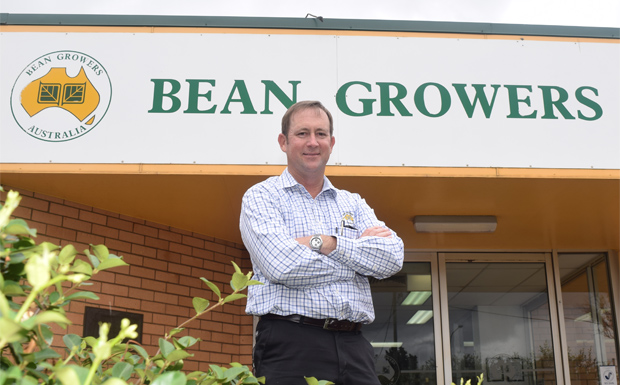
November 29, 2014
One of the South Burnett’s most iconic businesses has been celebrating its 50th anniversary … but the only present that Bean Growers Australia Managing Director Lloyd Neilsen would like to receive would be some better seasons.
“We’re optimistic about everything except the seasons,” he told southburnett.com.au on Friday.
“We have controlled everything that we can control … but we can’t control the weather.”
However, he said Bean Growers was “stronger than ever” and despite the drought, and in a strong financial position.
Bean Growers is famous for its navy beans but these days processes and markets a large range of other products including mungbeans, soybeans, chickpeas, cowpeas, popcorn and adzuki beans.
Navy beans were the company’s staple until the end of the 1980s.
At that time, Bean Growers diversified the crops it handled and also developed a farm merchandise division.
These were key to the group’s survival in the late 1990s when its main navy bean customer, Heinz, moved its baked bean plant to New Zealand and began sourcing beans from North America.
Lloyd said another key turning point for the business came when Bean Growers Co-op separated its two main businesses, splitting to become Bean Growers Australia Ltd and BGA Agriservices Ltd.
In August 2012, shareholders accepted an offer by Ruralco to purchase BGA Agriservices Ltd which freed up capital which could then be concentrated back into the core business of Bean Growers Australia.
This allowed a major upgrade of facilities.
“The main processing plant was quite tired,” Lloyd said. “It needed some love.”
Over the past two years, $4 million has been invested into the plant – including improvements in the cleaning plant, the construction of new storage silos and new automatic packing equipment.
“It is now one of the most modern, efficient packing facilities of our type in Australia,” Lloyd said.
“We have made a significant investment. All we are wanting now is a break in the season.
“We have had to shrink staff numbers to parallel the production coming out of the dry season.”
Lloyd is looking forward to the time when he has surplus crop again – because he can export it immediately.
“We export all of our surplus. We are located on a transport hub so we can react very quickly when we have product to sell,” he said.
- Related article: $3m Upgrade Adds A Little Polish

Some Company History
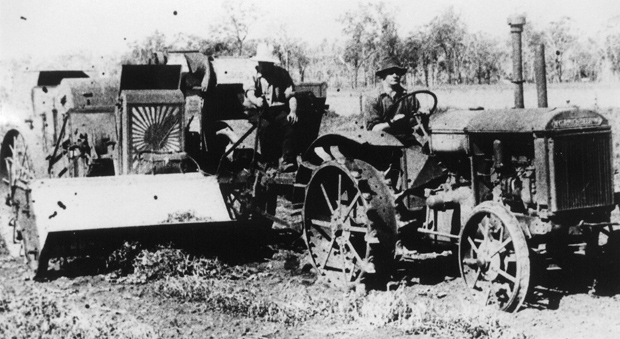
Navy bean production began in Australia during World War II when it became necessary to find an economical way of supplying a nutritious food to the many troops – especially American troops – based in Queensland.
The US military maintained a large base in Kingaroy and had many bases and camps throughout south-east Queensland.
It actively encouraged the widespread planting of navy beans.
“Navy bean” is actually an American term. It was coined because the US Navy has served the beans as a staple to its sailors since the mid-1800s. Most Australians know them as “baked beans”.
Kingaroy was chosen as the site for the first navy bean trials in the early 1940s and the US Army supplied the seed.
During the War, navy bean growers were under contract to the Federal Government and all production was controlled under the National Security Act.
After 1945 the industry was restructured and by 1946 there were 111 growers in Queensland – 72 of them in the South Burnett.
On November 7, 1946, the Navy Bean Marketing Board was established in Queensland and four growers were appointed to it.
As yields and quality increased, the Navy Bean Marketing Board began weighing up the pros and cons of establishing its own company to receive, store and process the crop.
In 1964, Jock Nesbitt, a former general manager of the Peanut Marketing Board (based in Kingaroy), took the helm and was appointed secretary/manager of the the Navy Bean Marketing Board.
That same year – after some strong lobbying by Kingaroy growers, including the late Errol Truss – the Board moved its operations from Brisbane to Kingaroy.
It also began to seriously look at ways in which it might establish its own facilities.
The Provisional Bean Association was established for this purpose.
The move to establish facilities in Kingaroy became more urgent after a fire damaged a Toowoomba plant which had been storing and processing beans from local growers.
In 1965, the Provisional Bean Association decided to handle the crop by itself and formed a co-operative for this purpose.
Kingaroy Shire Council encouraged the Association to take up council-owned land on the corner of River Road and Youngman streets.
The first directors of the Bean Growers Co-Operative Association Ltd were elected on February 4, 1965.

Douglas Barrie was chairman of the Provisional Bean Association from September 1964 to February 1965 and was the inaugural chairman and chairman of directors of the Bean Growers Co-Operative Association Ltd from February 1965 to December 1967, as well as chairman of the Navy Bean Marketing Board from 1964-1967.
One of the most important names associated with the history of BGA was Errol Truss who was chairman of the Co-Op from 1968 to 1991.
Errol was born in Kingaroy in 1922 and grew up on the family’s mixed farm at Kumbia. After a short time at Kingaroy State High School, he began farming with his father Frederick and brother Leon.
Errol wasn’t afraid of change and introduced many innovations onto his family’s farm – including one of the district’s first tractors (a Model A McCormick Deering), a Sunshine harvester and a two-row mounted corn picker with a trailing sheller. Later he built one of the first bulk grain handling and drying facilities in the Kumbia area.
During 1942, Errol was one of South Burnett farmers who began growing navy beans for the US Army. This began his long association with the industry.
In 1965 he was elected a member of the Navy Bean Marketing Board and took part in the lobbying that led to the decision to relocate the Board from Brisbane to Kingaroy.
He passed on his love of agriculture and community involvement to his sons Warren and Gary.
Warren served on Kingaroy Shire Council and was elected to the Federal Parliament in 1990. He is now Deputy Prime Minister. Gary is currently a navy bean grower in Kumbia.
[Historic photos: Bean Growers Australia]
|
|






